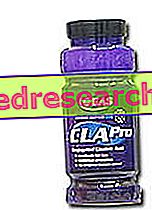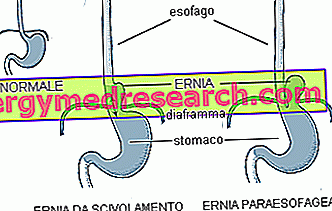Definition
In medicine, we talk about lactose intolerance when the body is unable to digest this sugar, which is ubiquitous in milk and derivatives: in a lactose intolerant subject, after ingesting foods that contain it, a non-lactose reaction is observed. allergic, which essentially consists in the manifestation of gastrointestinal symptoms, more or less serious.
Causes
The cause responsible for lactose intolerance lies in the deficiency of lactases (enzymes aimed at breaking down lactose into galactose and glucose) in the brush border of intestinal cells. More rarely, lactose intolerance is closely linked to the lack of proteolytic enzymes, responsible for the digestion of proteins present in milk.
Symptoms
The typical symptoms of lactose intolerance are mostly gastrointestinal, such as: abdominal cramps, diarrhea, flatulence, abdominal bloating, meteorism, nausea, oliguria. Most often, the patient suffering from lactose intolerance, after having taken milk and derivatives, complains of asthenia, general malaise, lack of appetite and weight loss.
Information on drugs for the treatment of lactose intolerance is not intended to replace the direct relationship between health professional and patient. Always consult your doctor and / or specialist before taking Lactose Intolerance Drugs.
drugs
It is possible to control and avoid the symptoms derived from lactose intolerance by paying attention to avoiding foods containing it, especially milk and fresh cheeses; milk intolerant, on the other hand, seem to tolerate the use of aged cheeses and yogurt in a positive way. There is no drug capable of reversing the disorder, therefore the patient must reduce the amount of lactose introduced with the diet, trying to avoid calcium deficiency; to avoid this inconvenience, it is advisable to enrich the diet with calcium supplements.
However, although lactose intolerance cannot be cured definitively with drugs, it is possible to take enzymatic substitutes formulated with lactase; as we have analyzed, in fact, a person intolerant to milk has a deficiency of lactase enzymes, therefore a specific supplement, although not solving the problem completely, can mitigate the symptoms.
It is recommended to consume milk and derivatives in small quantities, for a variable period of time; after which it is possible to gradually increase the quantities, so as to accustom the organism and stimulate the production of lactase enzymes.
Lactase : given that the body of a patient suffering from lactose intolerance is deficient in lactase, an integration of these digestive enzymes could constitute an important help. It is recommended to take the product an hour before a meal. Consult your doctor.
Calcium : calcium supplementation is not useful for healing lactose intolerance; rather, it is recommended because, by not taking milk and dairy products, the body may lack this important mineral.
- Calcium Carbonate (eg Idracal, Carbosint, Lubical, Eurocal D3): contains 40% of calcium (in 1 gram of calcium carbonate are contained 400 mg of calcium). The supplement is available as effervescent tablets, chewable tablets and sachets. Take the supplement during the meal or immediately after (indicative dose: 900-2.500 mg per day).
- Calcium citrate: 210 mg of calcium are present in 1 gram of calcium citrate. Take the supplement along with the meal or immediately after.
On the market there are products available formulated with lactose-free milk (lactose-free) and non-cow's milk (soy milk, almond milk, rice milk), particularly indicated for those suffering from milk intolerance.



